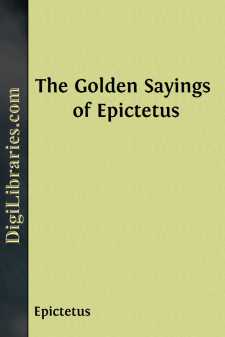Categories
- Antiques & Collectibles 13
- Architecture 36
- Art 48
- Bibles 22
- Biography & Autobiography 813
- Body, Mind & Spirit 142
- Business & Economics 28
- Children's Books 17
- Children's Fiction 14
- Computers 4
- Cooking 94
- Crafts & Hobbies 4
- Drama 346
- Education 46
- Family & Relationships 57
- Fiction 11829
- Games 19
- Gardening 17
- Health & Fitness 34
- History 1377
- House & Home 1
- Humor 147
- Juvenile Fiction 1873
- Juvenile Nonfiction 202
- Language Arts & Disciplines 88
- Law 16
- Literary Collections 686
- Literary Criticism 179
- Mathematics 13
- Medical 41
- Music 40
- Nature 179
- Non-Classifiable 1768
- Performing Arts 7
- Periodicals 1453
- Philosophy 64
- Photography 2
- Poetry 896
- Political Science 203
- Psychology 42
- Reference 154
- Religion 513
- Science 126
- Self-Help 84
- Social Science 81
- Sports & Recreation 34
- Study Aids 3
- Technology & Engineering 59
- Transportation 23
- Travel 463
- True Crime 29
A Selection from the Discourses of Epictetus with the Encheiridion
by: Epictetus
Description:
Excerpt
A SELECTION FROM THE DISCOURSES OF EPICTETUS.
OF THE THINGS WHICH ARE IN OUR POWER AND NOT IN OUR POWER.—Of all the faculties (except that which I shall soon mention), you will find not one which is capable of contemplating itself, and, consequently, not capable either of approving or disapproving. How far does the grammatic art possess the contemplating power? As far as forming a judgment about what is written and spoken. And how far music? As far as judging about melody. Does either of them then contemplate itself? By no means. But when you must write something to your friend, grammar will tell you what words you should write; but whether you should write or not, grammar will not tell you. And so it is with music as to musical sounds; but whether you should sing at the present time and play on the lute, or do neither, music will not tell you. What faculty then will tell you? That which contemplates both itself and all other things. And what is this faculty? The rational faculty; for this is the only faculty that we have received which examines itself, what it is, and what power it has, and what is the value of this gift, and examines all other faculties: for what else is there which tells us that golden things are beautiful, for they do not say so themselves? Evidently it is the faculty which is capable of judging of appearances. What else judges of music, grammar, and the other faculties, proves their uses, and points out the occasions for using them? Nothing else.
What then should a man have in readiness in such circumstances? What else than this? What is mine, and what is not mine; and what is permitted to me, and what is not permitted to me. I must die. Must I then die lamenting? I must be put in chains. Must I then also lament? I must go into exile. Does any man then hinder me from going with smiles and cheerfulness and contentment? Tell me the secret which you possess. I will not, for this is in my power. But I will put you in chains. Man, what are you talking about? Me, in chains? You may fetter my leg, but my will not even Zeus himself can overpower. I will throw you into prison. My poor body, you mean. I will cut your head off. When then have I told you that my head alone cannot be cut off? These are the things which philosophers should meditate on, which they should write daily, in which they should exercise themselves.
What then did Agrippinus say? He said, "I am not a hindrance to myself." When it was reported to him that his trial was going on in the Senate, he said: "I hope it may turn out well; but it is the fifth hour of the day"—this was the time when he was used to exercise himself and then take the cold bath,—"let us go and take our exercise." After he had taken his exercise, one comes and tells him, "You have been condemned." "To banishment," he replies, "or to death?" "To banishment." "What about my property?" "It is not taken from you." "Let us go to Aricia then," he said, "and dine."
HOW A MAN ON EVERY OCCASION CAN MAINTAIN HIS PROPER CHARACTER.—To the rational animal only is the irrational intolerable; but that which is rational is tolerable....



